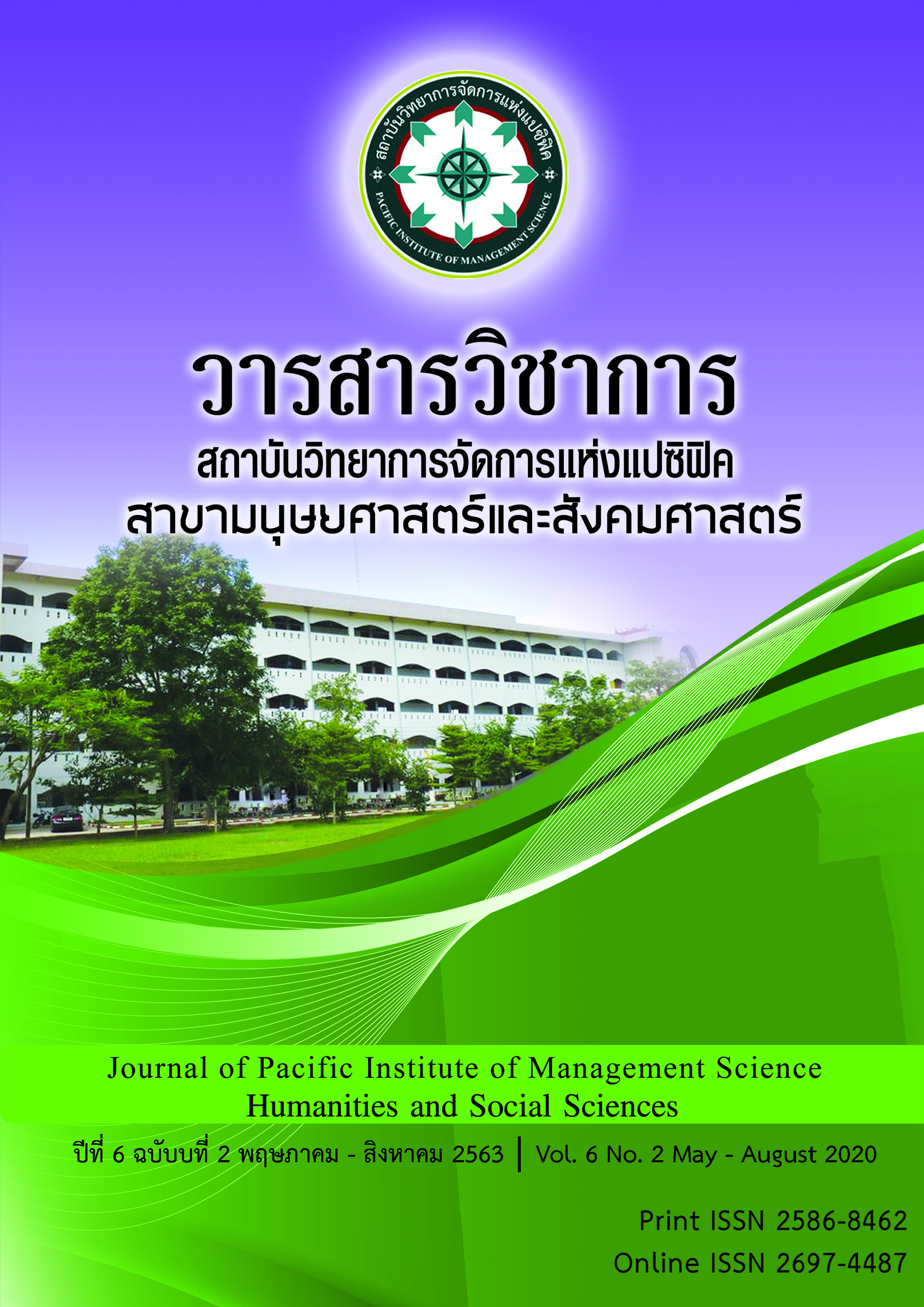Education Business Strategy to Succeed in the Management of Private Vocational Colleges in the Lao People’s Democratic Republic
Keywords:
Private Vocational Colleges, Business Strategies of Private Vocational CollegeAbstract
Researcher concerned about Educational Business Strategic Management of Private Vocational Colleges in Laos and did this dissertation in order to following objectives. Firstly, study the achievements of Private Vocational College in Laos. Secondly, Study the factors influencing those achievements, and then, the researcher would study Business Strategic Management deeply in Private Vocational College in the Lao People’s Democratic Republic. Thirdly, define those strategies as key success factors. Population and Sample group used were executive level group and teachers getting involve in business administration of all 65 colleges in Laos. By using In-depth interviews and Questionnaires, the researcher then collected data and used statistic tools such as Frequency, Percentage, Mean, Standard Deviation and proofed the hypothesis by One-Way ANOVA, F- test with statistically significant difference at 0.05.
By setting 3 hypothesis congruence what the researcher had concerned, finally found that
(1) Private Vocational Colleges in the Lao People’s Democratic Republic that could achieve in management outstandingly consisted of 33 of 65 colleges. The measurement of achievement and success include; the student amounts, parent satisfactions in ethics, graduated student qualifications for labor market and increasing trends for employment.
(2) Key success factors of Private Vocational Colleges in the Lao People’s Democratic Republic derived from the followings; Curriculum had statistically significant difference at 0.382. Counseling had statistically significant difference at 0.326. Cooperation and management’s participation from teachers had statistically significant difference at 0.251. Parent satisfactions had statistically significant difference at 0.420.
(3) The researcher could end up with the strategies’ definitions for 3 perspectives include; Educational Quality Control, Educational Business Strategies, and, Capability in Business Management.
References
Baker, W. E., & Sinkula, J. M. (1999b). Learning orientation, market orientation, and Innovation: Integrating and extending models of organization performance. Journal of Market Focused Management, 4(4), 295-308.
Cabrera,E.F.,Ortega, J., & Cabrera,A.(2003). An exploration of the factors that influence employee participation in Europe. Journal of World Business, 38(1),43-54
Cayer, C. (2001). Choosing appropriate business improvement tools. Quality Congress Asq’s Annual Quality Congress Proceedings, 1(1), 282-285.
Dess, G. G., & Lumpkin, G. T. (2003). Strategic management: Creating competitive. advantages. Boston: McGraw-Hill
Nilsson, L., Johnson, M. D., & Gustafsson, A. (2001). The Impact of quality practices on customer satisfaction and business results: Product versus service organizations. Journal of quality Management, 6(2), 5-27.
Nunnally, J. C., & Bernstein, I. H. (1994). Psychometric theory (3rd ed.). New York: McGraw-Hill.
Pitts, R.A., & Lei, D.(2000).Strategic management: Building and sustaining competitive advantage (2 nd ed.). Cincinnati, OH: South-Western College.
Porter, M. E. (2003). Thailand’s competitiveness: Creating the foundation for higher productivity. New York: The Free Press.
Selden, S. C., & Sowa, J.E. (2003).Testing a multi-dimensional model of organizational performance: Prospects and problems. Journal of Public Administration Research and Theory, 14(3), 395-416.
Shera, P. J., & Lee, V. C. (2004). Information technology as a facilitator for enhancing dynamic capabilities through knowledge management. Journal information and Management, 41(8), 933-945.
Downloads
Published
Issue
Section
License
Copyright (c) 2020 Pacific Institute of Management Science

This work is licensed under a Creative Commons Attribution-NonCommercial-NoDerivatives 4.0 International License.
บทความที่ได้รับการตีพิมพ์เป็นลิขสิทธิ์ของ สถาบันวิทยาการจัดการแห่งแปซิฟิค
ข้อความที่ปรากฏในบทความแต่ละเรื่องในวารสารวิชาการเล่มนี้เป็นความคิดเห็นส่วนตัวของผู้เขียนแต่ละท่านไม่เกี่ยวข้องกับสถาบันวิทยาการจัดการแห่งแปซิฟิค และคณาจารย์ท่านอื่นๆในสถาบันฯ แต่อย่างใด ความรับผิดชอบองค์ประกอบทั้งหมดของบทความแต่ละเรื่องเป็นของผู้เขียนแต่ละท่าน หากมีความผิดพลาดใดๆ ผู้เขียนแต่ละท่านจะรับผิดชอบบทความของตนเองแต่ผู้เดียว







